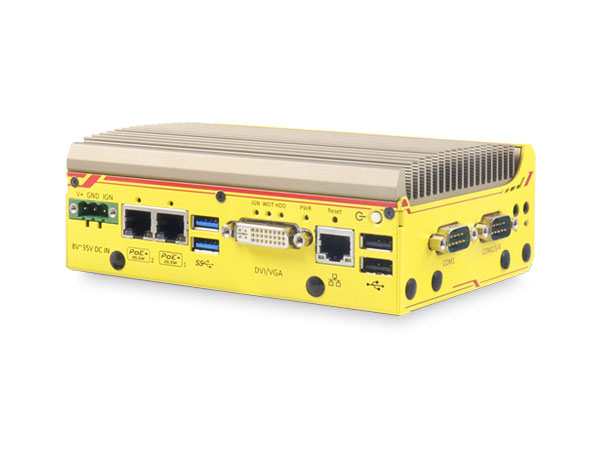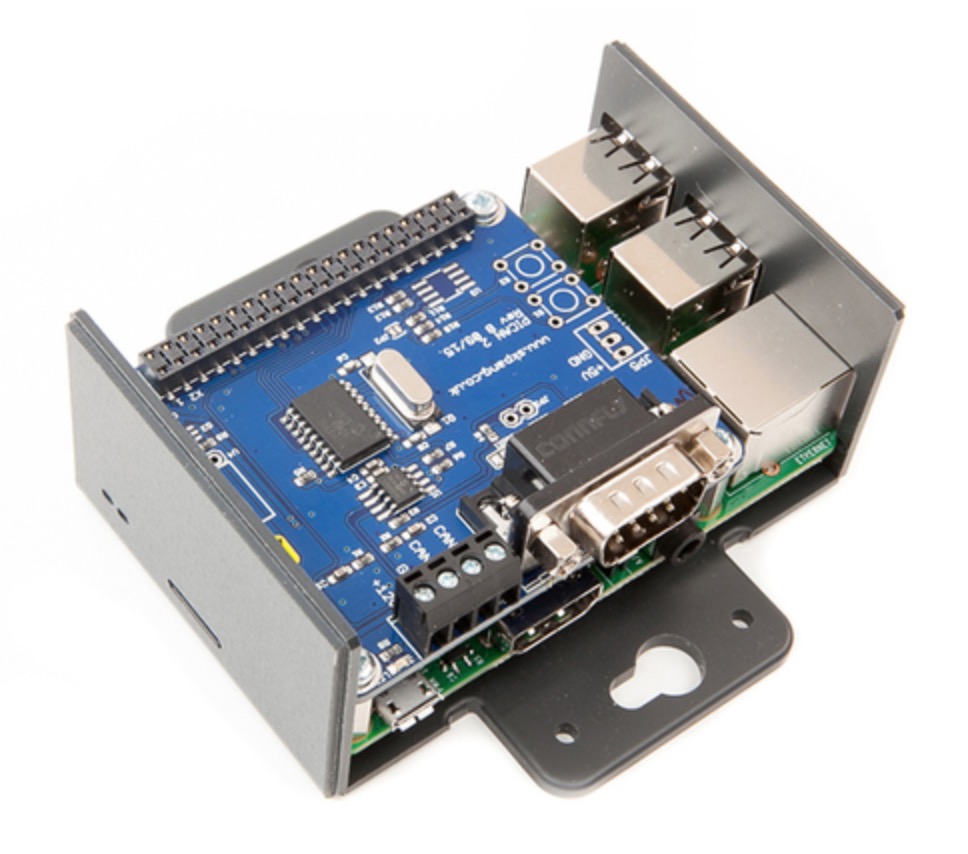Blog
Recent Posts
Ultra-Compact In-Vehicle Controller With Isolated CAN Bus Interface
Posted by on
The POC-351VTC series by Neousys (Taiwan) is an in-vehicle PC with an Intel Apollo Lake Atom E3950 quad-core processor, and it provides an isolated CAN Bus interface supporting in-vehicle communication. The host controller features an isolated CAN Bus interface supporting 11-bit IDs. Additionally, it offers two PoE+ (Power-over-Ethernet) interfaces to power peripherals such as IP cameras, and one additional 1-Gbit/s Ethernet port. EIA-232/422/485 lines are available, too. The 8-VDC to 35-VDC input with built-in ignition power control makes the host controller fit for most vehicle categories. Wireless Internet access is essential for modern day in-vehicle applications. The PC has a total of four M.2/ mPCIe sockets and six antenna holes to accommodate a variety of 4G, 3G, WIFI, and GPS modules.
An aluminum heat-spreader was designed to dissipate heat generated by modules to maintain superior operating stability, for the system and communication modules. The product measures 56 mm x 153 mm x 108 mm, and it comes with four-channel isolated digital inputs and outputs.
Features
- Intel® Apollo Lake Atom™ E3950 quad-core processor
- Rugged, -25 °C to 70 °C fanless operation
- Two IEEE 803.3at PoE+ ports and one GbE port
- One isolated CAN port for in-vehicle communication
- One M.2 socket and three mini-PCIe sockets
- Aluminum heat-spreader for M.2/ mPCIe modules
- 4-CH isolated DI and 4-CH isolated DO
- 8~35V DC input with built-in ignition power control
More Information
- Download/View the Neousys POC-351VTC Series data sheet (PDF)...
- More Information...
Raspberry Pi 3 System With CAN Bus Interface
The Raspberry Pi 3 System With CAN Bus Interface (PiCAN2) comes with a pre-installed Raspbian operating system.
The included PiCAN2 board provides Controller Area Network (CAN) Bus capabilities for the Raspberry Pi. It uses the Microchip MCP2515 CAN controller with MCP2551 CAN transceiver.
Connection are made via DB9 or 3-way screw terminal.
There is an easy-to-install SocketCAN driver, and programming can be accomplished in C or Python.
The enclosure is made from High Impact Polystyrene HIPS UL94-HB material. Mounting flanges allow for wall mounting.
 Loading... Please wait...
Loading... Please wait...


